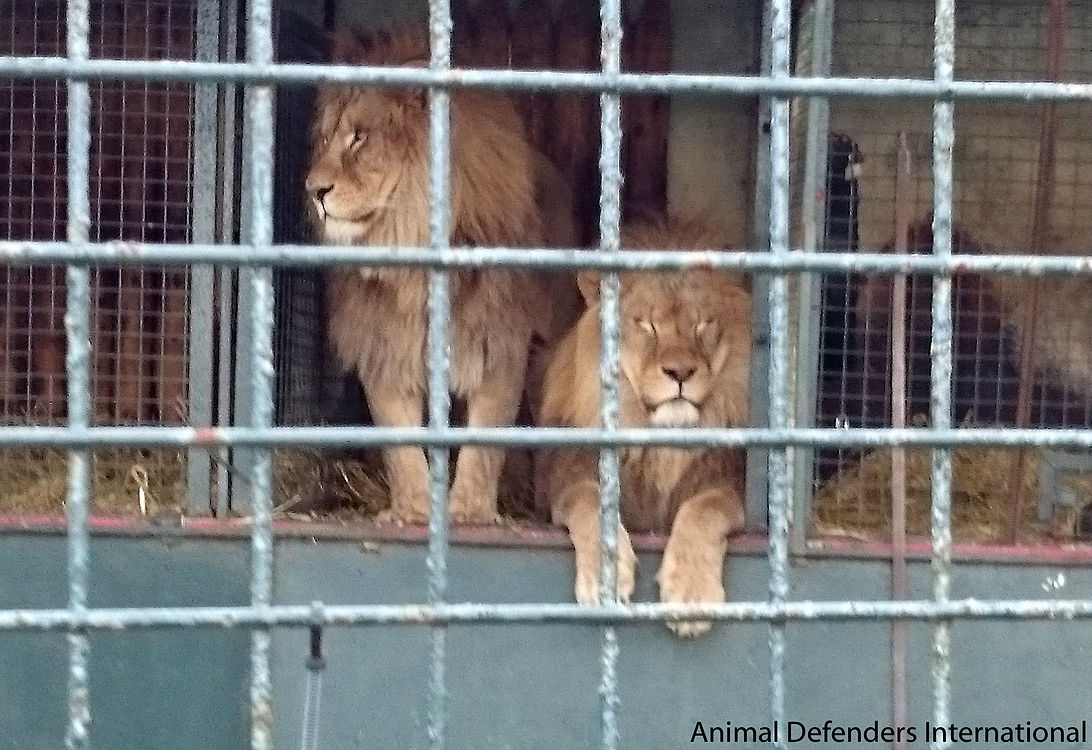Reports have been warmly welcomed by the Animal Defenders International (ADI) recently – this suggests that a ban on the use of wild animals in circuses in England is finally to be progressed by the UK Government.
If this is indeed true, it will signify a triumph after years of difficulty and inaction in the fight to end animal suffering through circus performance. This will put an end to the frustrations caused by over a decade of seemingly empty promises by successive governments.
Jan Creamer, President of Animal Defenders International, said: “Animal Defenders International welcomes the reports of government plans to finally put the ban on wild animals in circuses before Parliament. However, we remain cautious after so many broken promises over the years. “When parliamentary time allows” has often, it seems, been code for “it’s not going to happen”, yet the public wants an end to circus suffering and ADI’s evidence has repeatedly shown that circus animals urgently need government action.”
Due to the level of cross-party support, the Labour Government first promised to ban wild animals in circuses during the passage of the Animal Welfare Act 2006. Following the shocking abuse of three elephants at the Great British Circus in 2009, exposed by ADI, a public consultation on the issue was launched by Defra. The results published in 2010 showed 94.5% supported a ban on wild animal acts and resulted in a commitment from the Labour Government before the General Election resulted in a Coalition Government.
In time attitudes have changed towards this issue, and the use of wild animals in circuses across Britain have substantially decreased because the masses have become more aware of the problems linked with this.
Expert analysis of scientific evidence undertaken by Professor Stephen Harris at Bristol University in 2016 reported that “Life for wild animals in travelling circuses…does not appear to constitute either a ‘good life’ or a ‘life worth living’”.
Meanwhile, The Federation of Veterinarians of Europe (FVE) has concluded “there is by no means the possibility that their [wild mammals in traveling circuses’] physiological, mental and social requirements can adequately be met.”
The behind-the-scenes abuse that goes on in circuses has been highlighted by undercover investigations by ADI, and this has resulted in bans in Greece, Singapore, Costa Rica, Taiwan and Colombia (to name a few examples). In its efforts the company has conducted major enforcement operations, with wildlife officials and police rescuing approximately 200 animals in Bolivia and Peru.
Because of the travel involved with circus acts and their temporary nature, these bases cannot act as a suitable facility to look after animals – their welfare will always be compromised.
More than 40 countries around the world have introduced prohibitions on animals in circuses to date. Reports of a ban in England come on the day New Jersey votes to become the first US state to ban wild animal acts. Impressively, more than 80 US jurisdictions in 31 states have taken action to restrict such acts.
We can only hope that these reports will be verified and the animal cruelty can then stop for good.
> Hannah Montgomery












